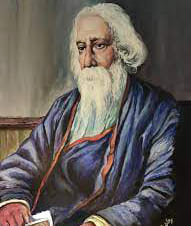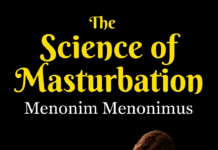R Tagore | Untimely Leave | Analytical Study
Rabindranath Tagore’s Poem ‘Untimely Leave’-An Analytical Study
The theme of the poem “Untimely Leave” by Rabindranath Tagore deals with the speaker’s submission to their master’s will and their transition towards a quieter, more introspective mode of communication. The speaker states that they will no longer use noisy and loud words but will instead speak in whispers. The speech of their heart will be conveyed through the murmurings of a song.
The poem employs the literary device of contrast to emphasize the speaker’s departure from conventional communication and engagement. While others rush to the King’s market, busy with buying and selling, the speaker takes an untimely leave in the middle of the day, amidst their work. This contrast highlights the speaker’s departure from the usual patterns and expectations of society.
The poem also utilizes vivid imagery to depict the speaker’s shift in focus. The speaker mentions the flowers coming out in their garden, even though it is not their usual time to bloom. This imagery symbolizes a deviation from the expected and traditional. Similarly, the midday bees strike up their lazy hum, suggesting a departure from the norm and a willingness to embrace the unconventional.
Furthermore, the poem explores the speaker’s transition in priorities. They mention having spent many hours in the strife between good and evil, indicating their previous engagement in moral and ethical matters. However, now their playmate of the empty days, possibly representing a divine presence or a spiritual force, draws their heart towards a different direction. The speaker expresses confusion regarding this sudden call towards what seems like useless inconsequence, suggesting a sense of uncertainty and questioning.
In summary, “Untimely Leave” delves into themes of obedience, inner reflection, and the acceptance of unexpected shifts in priorities. The poem employs contrast and vivid imagery to convey the speaker’s departure from conventional communication, engagement, and priorities. It explores a sense of surrender to a higher calling and a willingness to embrace a different path. 0 0 0
R Tagore Untimely Leave Analytical Study
N.B. The article ‘R Tagore Untimely Leave Analytical Study’ originally belongs to the book ‘Analytical Studies of Selected Poems of Rabindranath Tagore‘ by Menonim Menonimus.
Books of Literary Criticism by M. Menonimus:
- World Short Story Criticism
- World Poetry Criticism
- World Drama Criticism
- World Novel Criticism
- World Essay Criticism
- Indian English Poetry Criticism
- Indian English Poets and Poetry Chief Features
- Emily Dickinson’s Poetry-A Thematic Study
- Walt Whitman’s Poetry-A Thematic Study
- Critical Essays on English Poetry
- Tawfiq al-Hakim’s Novel: Return of the Spirit-An Analytical Study
- Tawfiq al-Hakim’s Novel: ‘Yawmiyyat Naib Fil Arayaf’-An Analytical Study
- Analytical Studies of Some Arabic Short Stories
- A Brief History of Arabic Literature: Pre-Islamic Period (500 AD-622 AD)
- A Brief History of Arabic Literature: Early Islamic Period (622 AD-661 AD)
- Reviews on William Shakespeare’s Works
- Reviews of Charles Dickens’ Works
- Reviews of John Milton’s Literary Works
- Reviews of Some Iconic Travelogues
- Shakespeare’s Sonnets-Critical Studies
- Analytical Studies of Selected Poems of Sarojini Naidu
- Analytical Studies of Selected Poems of Rabindranath Tagore …
Additional Searches :
- Rabindranath Tagore
- 10 Timeless Poems by Rabindranath Tagore
- Rabindranath Tagore as a Poet
- Rabindranath Tagore Critical Analysis
- Rabindranath Tagore Poems
- Gitanjali by Rabindranath Tagore
- Walk Alone by Rabindranath Tagore
.











